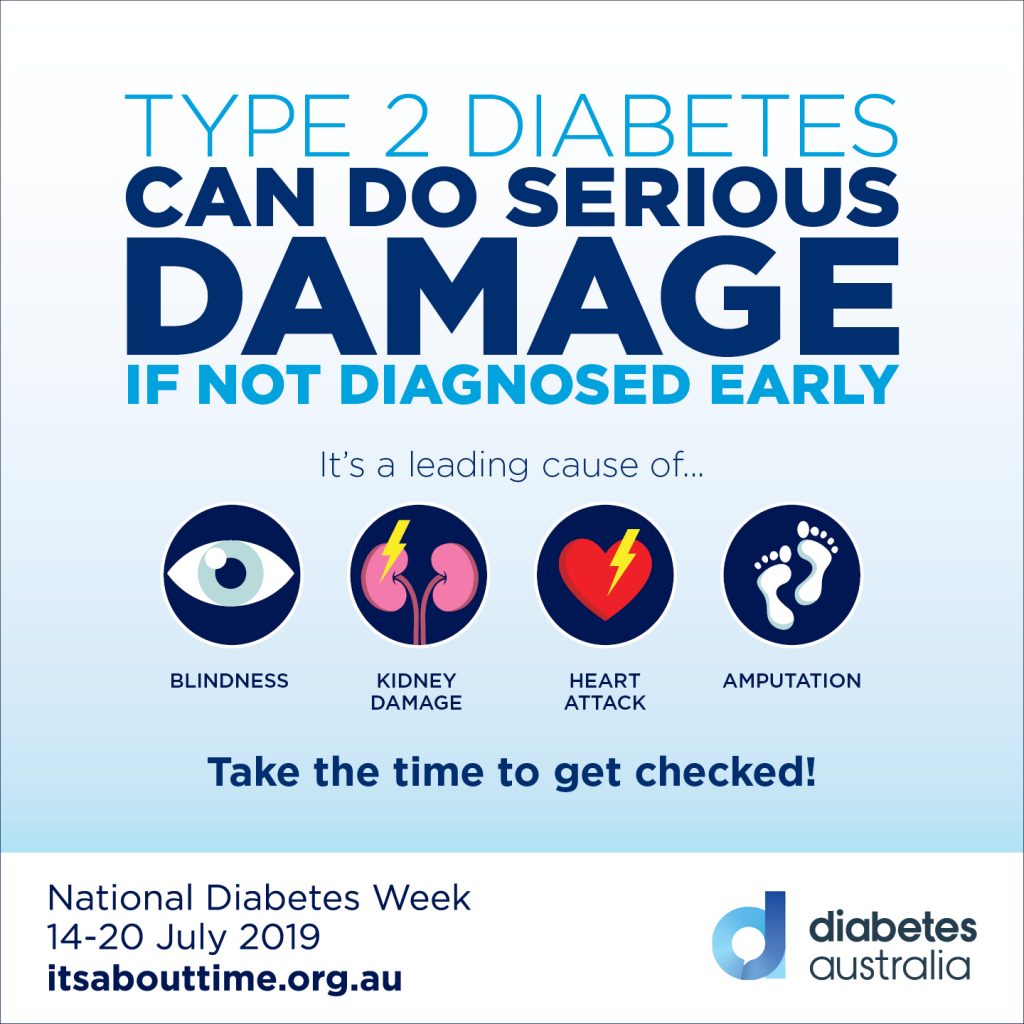Diabetes is a complex health condition which can result in long term complications. Millions of people worldwide have diabetes, and the worrying fact is that a percentage of those affected are not even aware that they are diabetic! There is no such thing as ‘mild’ diabetes. High blood glucose levels over a period of time can damage the small and large blood vessels and nerves.
Not knowing you have Diabetes is a huge risk, because badly controlled diabetes can lead to numerous serious complications. This article shares the 10 serious and scary things you may not know about this killer-disease.
- Kidney disease
High blood glucose levels due to poor control can lead to your kidneys being overworked, which can lead to kidney disease. Severe cases can lead to kidney failure or irreversible end-stage kidney disease, requiring patients to undergo dialysis or a kidney transplant. Signs of kidney problems can be increasing amounts of protein in urine, water retention in ankles, abdomen and chest, foul taste in the mouth, vomiting, and tiredness throughout the day.
- Hypertension (High blood pressure)
Due to the hardening and narrowing of the arteries, a diabetic’s heart has to pump harder than normal and this builds up pressure against the artery walls. Symptoms of this are frequent headaches, blurring vision and shortness of breath. To reduce the effects of this complication, you should eat a low-fat and high-fibre diet, exercise regularly, quit smoking and keep a healthy weight.
- Heart complications
Diabetes causes an increased narrowing of the arteries and also the hardening of the arteries which slows down blood flow. Diabetics are at risk of heart problems such as coronary artery disease (when the blood supply to the heart muscle is diminished), which is the main cause of heart attacks.
- Stroke
Diabetics can suffer from strokes when the blood flow to the brain is blocked. This happens due to the hardening and narrowing of the arteries in the brain. If one’s blood pressure, cholesterol levels, and blood glucose levels are not controlled, the risk of stroke increases significantly.
- Eye complications
Diabetes can damage the blood vessels in the retina, which may lead to blindness. People with diabetes may also develop eye problems like glaucoma, cataracts, and diabetic retinopathy. If your eyesight is becoming blurred, if you see shadows or floating spots, or if you’re having trouble seeing at night, you should consult your doctor immediately.
- Gastroparesis
Gastroparesis is when the muscles of the stomach stop functioning properly. It is a condition that reduces the ability of the stomach to empty its contents, and it does not involve a blockage or obstruction.
- Foot complications
Nerve damage and damage of the blood vessels in the legs and feet of diabetics cause poor circulation, which leads to patients developing foot problems. An innocent blister on your foot can become a serious infection if left untreated. Severe damage may lead to a toe, foot or leg amputation.
- Nerve damage
Uncontrolled diabetes may result in nerve damage. The high blood glucose damages nerves in the arms, hands, legs and feet. If left untreated, diabetics could lose all sense of feeling in affected limbs. Patients should watch out for the loss of feeling in their feet, numbness (pins and needles), tingling and burning sensations, and muscle weakness. You can better prevent this by practising good blood glucose control, regular exercise and by quitting smoking.
- Poor Sexual Health
Diabetes can sometimes contribute to sexual health problems in both men and women. Some women with diabetes may experience sexual problems such as vaginal dryness, a decrease in sexual desire, slower than normal arousal, pain during sex, and trouble having an orgasm. Women with diabetes are also more likely to get thrush (a yeast infection), but keeping your blood glucose levels in the target range helps to avoid this. In men the most common problem is erectile dysfunction (also known as impotence), when the man is unable to get or keep an erection long enough for intercourse. Men with diabetes who experience erectile dysfunction often have other complications. This can include high blood pressure, high cholesterol or heart disease.
- Hyperosmolar Hyperglycemic Nonketotic Syndrome (HHNS)
HHNS is where blood glucose levels shoot up too high and your body tries to get rid of the excess sugar by passing it through your urine. The symptoms include high blood sugar levels over 600mg/dl; dry and parched mouth; extreme thirst; high fever, warm and dry skin, sleepiness or confusion, loss of vision, hallucinations, dehydration, and weakness on one side of the body.
The good news is that the risk of developing complications is significantly reduced by healthy eating, regular physical activity and having well-controlled blood glucose levels and blood pressure.
AB Health and Fitness is pleased to offer the Life! program, a FREE preventative health initiative that helps you reduce your risk of type 2 diabetes and cardiovascular disease. This program gives you the motivation and support needed to make and maintain positive changes and to adopt healthy behaviours and a more active lifestyle and in addition to this every eligible participant is given a 5 month membership to AB Health and Fitness.
To see if you are eligible take the eligibility test below or send us an email info@ab-life.com.au








